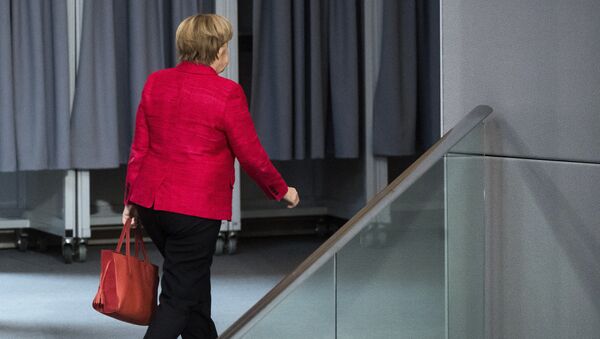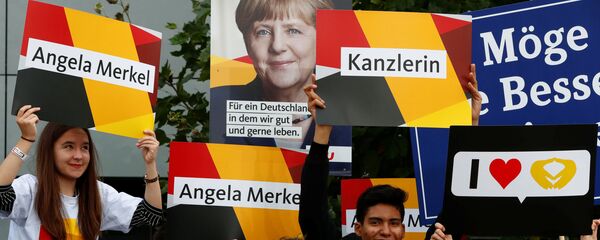Migration
• The leaders of the CDU/CSU and the SPD — Angela Merkel and Martin Schulz — agreed to ensure that the number of refugees arriving in the country does not exceed 180,000 to 220,000 people per year.
• Possibilities of family reunification for refugees who have limited asylum status will be narrowed (presumably down to 1000 people per month). The parties plan to discuss new regulations in the area during the round of next talks.
European Integration
• The two parties have agreed to spend more money on the EU. They decided that it was necessary to strengthen the European Union, thus increasing Germany's financial contribution to Brussels.
"We want to strengthen the EU financially, so that it can better fulfill its tasks: which is why we will take this into account during the preparation of our financial framework for the upcoming years," the 28-page document, which the two parties agreed upon, said.
READ MORE: Four Key Stumbling Blocks in Talks to Form German Coalition
• The CDU/CSU and the SPD have made a decision to reform the Eurozone. They plan to increase fiscal controls and strengthen the fight against tax fraud and tax evasion. The European Stability Mechanism (ESM) should be transformed into the European Monetary Fund, which will be under parliamentary control and enshrined in EU law.
• The implementation of the United States of Europe project proposed by SPD's Martin Schulz is not in sight. However, Germany and France are understood as the "drivers of innovation" that should to take the lead in those areas where other EU member states lack resources.
Social Benefits
• The SPD's health insurance project, according to which the two-tier insurance system (consisting of statutory and private ones) should be eliminated, is off the table. But there are still positive changes for employees in this regard, as companies will now have to pay more for their workers' health care. This means a return to the principle of parity, according to which employers and employees will pay equal shares for health care. The additional payments that previously had to be paid by employees will be abolished.
READ MORE: Merkel on Government Coalition Talks' Results: Fresh Start for Europe, Germany
• Given the lack of care workers in the country, the parties agreed to launch a special educational program for skilled workers and create 8,000 new jobs in the care sector. They also pledged to increase payments for care workers who work in the elderly care sector.
• The Social Democrats managed to push through their retirement project and stabilized the pension level at 48 percent of an average salary for the future. They also managed to enforce their initiative to increase pensions for low-income workers.
Military Spending
•The parties agreed to further restrict arms exports and adopt stricter arms exports legislation.
•They, however, have not yet decided on whether the military spending should be increased to reach the NATO target two percent of GDP for military purposes.
Commenting on the current political situation in the country, German President Frank-Walter Steinmeier said that "we are now facing a situation that has never happened before in the history of the Federal Republic of Germany, that is for almost 70 years."
German Chancellor Angela Merkel's party is now trying to renew a grand coalition with the Social Democrats. Preliminary talks to form the new government are underway.


